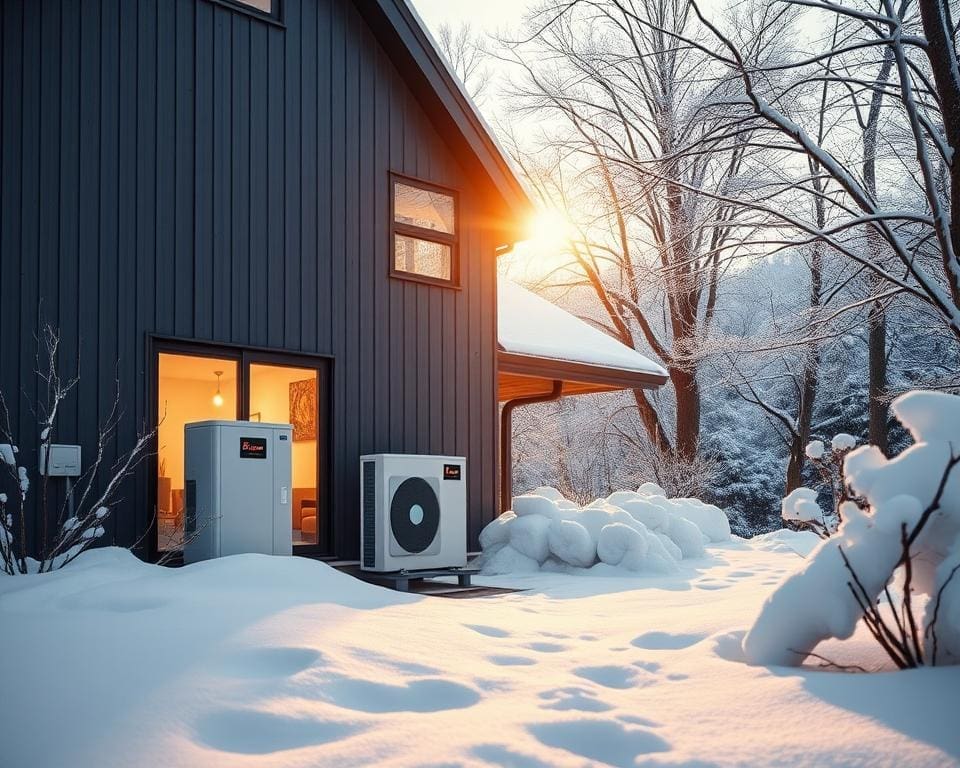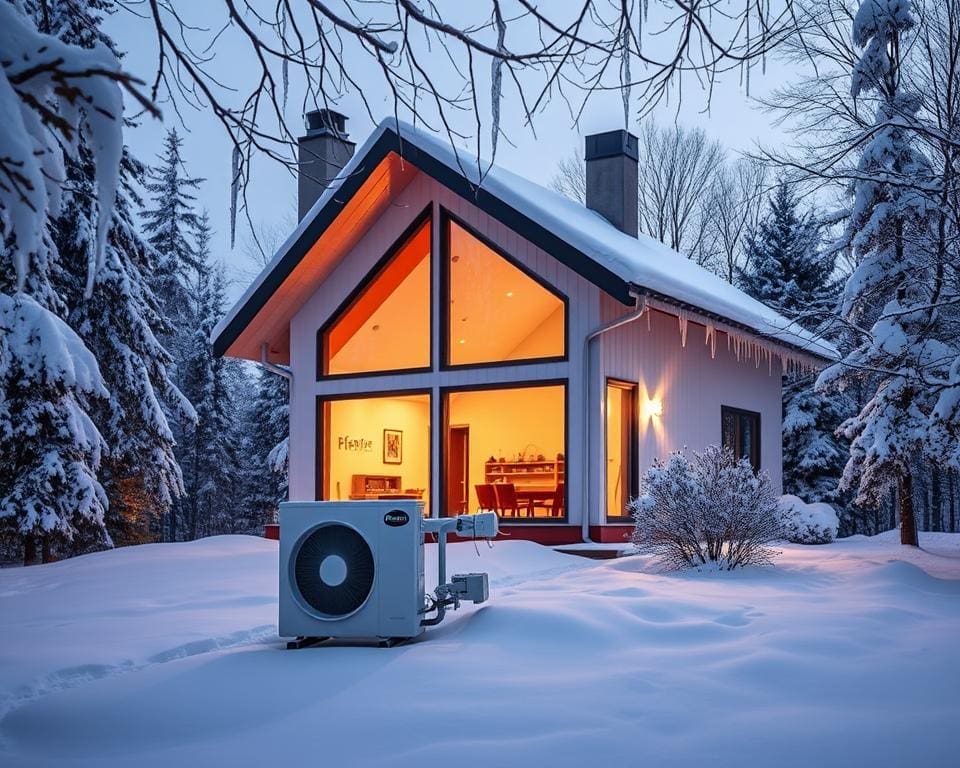As the chill of winter approaches, the quest for energy-efficient heating solutions becomes paramount. Heat pumps have emerged as a remarkable technology, effectively providing warmth while prioritising sustainability. With a growing awareness of the need for eco-friendly alternatives, the adoption of heat pumps is becoming increasingly prevalent across the United Kingdom.
These innovative systems operate by transferring heat from the outside environment into your home, rather than generating heat like traditional systems. This unique operation not only leads to significant energy savings but also contributes to a reduction in your carbon footprint. The adaptability of heat pumps makes them an excellent choice for various types of homes, positioning them as ideal contenders for winter warmth.
The amalgamation of cutting-edge technology and environmental consciousness found in heat pumps ensures you can enjoy a cozy home without compromising your commitment to a cleaner planet. Embrace the advantages of heat pumps as a sustainable heating solution this winter.
Understanding Heat Pumps
Heat pumps are innovative devices designed to provide energy-efficient heating for homes. By converting renewable energy sources into warmth, these systems contribute to a more sustainable future. Understanding how heat pumps operate is crucial for anyone considering an upgrade to their heating solutions.
What Are Heat Pumps?
Heat pumps are versatile systems that extract heat from the environment, transferring it indoors to provide warmth. Functioning using minimal electricity, they are regarded as an eco-friendly heating option. These units can draw heat from various sources such as air, groundwater, or soil, making them adaptable to different home settings.
How Do Heat Pumps Work?
The operation of heat pumps revolves around a simple thermodynamic cycle. This process involves three main components: the evaporator, compressor, and condenser. Initially, the heat pump absorbs heat from outside air or soil. The refrigerant fluid, which evaporates easily, absorbs this heat and becomes a gas. This gas is then compressed, raising its temperature. Finally, it releases the heat indoors through the condenser, where it cools back into a liquid state to repeat the cycle. This method of energy-efficient heating can significantly lower energy costs.
Benefits of Using Heat Pumps
- Reduced energy bills compared to conventional boilers and heating systems.
- Lower greenhouse gas emissions, contributing to a cleaner environment.
- Dual functionality, providing both heating and cooling as needed.
- Utilisation of renewable energy sources, supporting eco-friendly heating solutions.

Heat Pumps: Efficient Solutions for Winter Warmth
Exploring the benefits of heat pumps in comparison to traditional heating systems reveals a significant shift in how we can achieve comfortable living spaces during the winter months. With advancements in technology, understanding the dynamics of these systems is crucial for homeowners looking for sustainable and economical heating options.
Comparing Heat Pumps to Traditional Heating Systems
Traditional heating systems such as gas boilers and electric heaters often come with high energy consumption and environmental impacts. In contrast, heat pumps offer an innovative approach by extracting heat from the environment, resulting in remarkable energy efficiency metrics. A key advantage lies in their coefficient of performance (COP), which ranges from 3 to 5, indicating that for every unit of electricity consumed, they can produce 3 to 5 units of heat. This efficiency translates into a more sustainable heating choice, enhancing overall home comfort.
Energy Efficiency and Cost Savings
Homeowners who switch to heat pumps can experience substantial cost savings on their energy bills over time. The initial investment may appear significant; however, when considering long-term savings, the transition proves beneficial. Furthermore, the integration of smart thermostats with heat pumps allows for improved energy management, driving down operating costs even more. This synergy enhances the appeal of heat pumps not just as an energy-efficient solution, but as a savvy financial decision for those seeking warmth during the colder months.
Types of Heat Pumps
When considering options for efficient home heating, the types of heat pumps available play a crucial role. Each type harnesses energy differently, catering to various needs and preferences. Understanding their distinct characteristics helps homeowners choose the best fit for their space.
Air Source Heat Pumps
Air source heat pumps are among the most prevalent forms of heating solutions. They work by extracting heat from the outside air, even in lower temperatures. This method allows for year-round functionality, making them versatile for a range of climatic conditions. Installation typically involves a unit placed outside the home, where it collects ambient heat and transfers it indoors. Their integration with existing heating systems enhances their efficiency, reinforcing their status in renewable heating technology.
Ground Source Heat Pumps
Ground source heat pumps offer an alternative by utilising the relatively constant temperature of the earth below the surface. This process involves burying pipes underground, where they absorb heat and transfer it into the home. Their efficiency tends to increase over time, as they are less affected by external temperature fluctuations. Ground source heat pumps require a more extensive installation process but provide excellent long-term savings. These systems stand out in the realm of renewable heating technology, promoting sustainability alongside comfort.
Eco-Friendly Heating Solutions
As the urgency to combat climate change grows, eco-friendly heating options have become essential. Heat pumps embody this shift towards sustainable practices, offering a solution that aligns with modern environmental values.
Renewable Heating Technology
Utilising renewable heating technology, heat pumps harness energy from the environment, such as air or ground, to provide efficient warmth for homes. This innovation reduces the dependency on traditional fossil fuels, paving the way for a more sustainable future. By integrating these systems, households contribute to environmental preservation while enjoying lower energy costs.
Reducing Your Carbon Footprint with Heat Pumps
The move towards eco-friendly heating practices can significantly aid in carbon footprint reduction. Employing heat pumps not only curtails emissions but also supports governmental initiatives aimed at achieving carbon neutrality in the UK. By opting for such technology, individuals and communities can play a vital role in mitigating climate change impacts.
Choosing the Right Heat Pump for Your Home
When it comes to choosing heat pumps for your home, understanding the unique needs of your living space is paramount. Considerations such as the size and insulation of your property can greatly influence the efficiency of your system. Larger homes may require more powerful units or even multiple systems, while well-insulated spaces might benefit from smaller or more compact models. By assessing your current energy consumption patterns, you can identify a heat pump that optimises home energy efficiency, ultimately leading to reduced energy bills.
Consulting with certified installers can significantly enhance your decision-making process. These professionals can offer personalised recommendations based on system compatibility and efficiency ratings. They can assess your specific heating needs while also guiding you toward sustainable heating solutions. Investing the time to gather expert advice ensures that you select a heat pump tailored to both your home and lifestyle, equipping you for a comfortable winter season.
Transitioning to a heat pump not only enhances your heating experience but also positions you as a contributor to a more sustainable future. With the growing emphasis on energy efficiency and reducing carbon footprints, making informed choices in your heating system reflects a progressive approach to energy consumption. Embrace this opportunity to modernise your home heating and commit to a greener planet.









